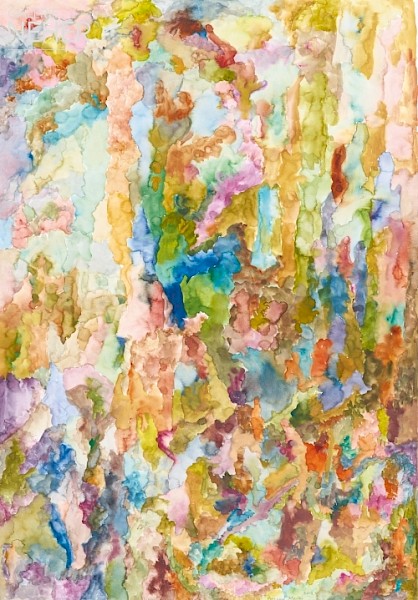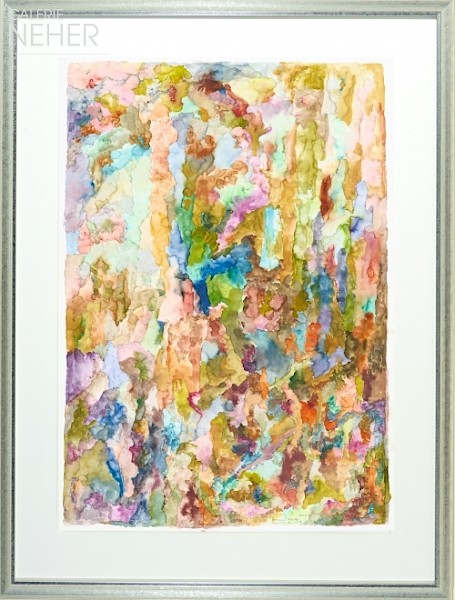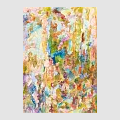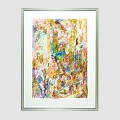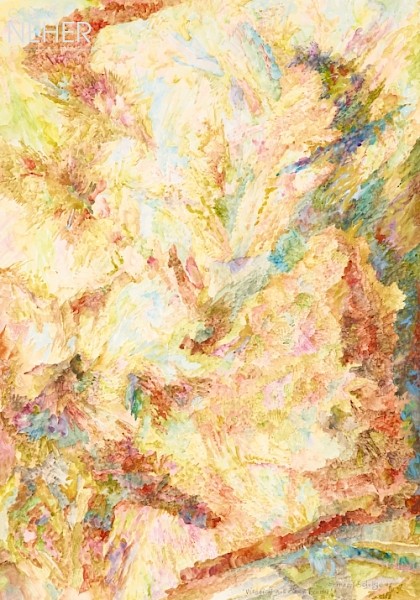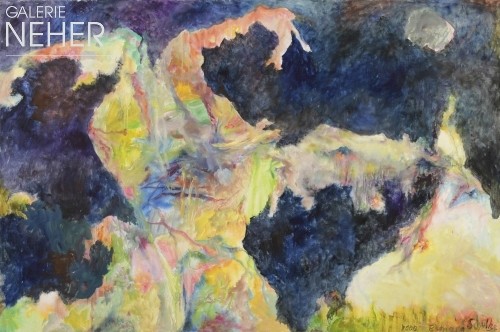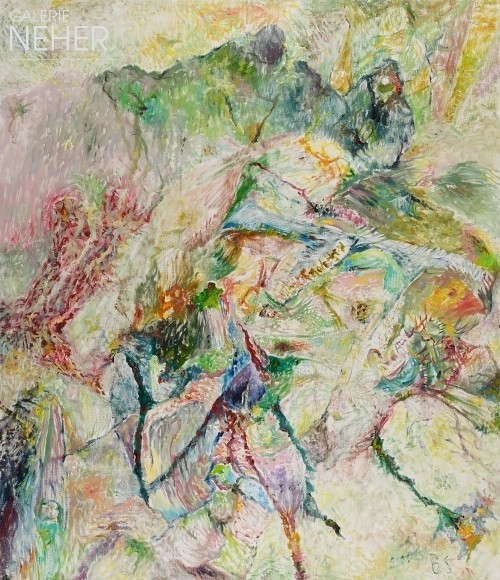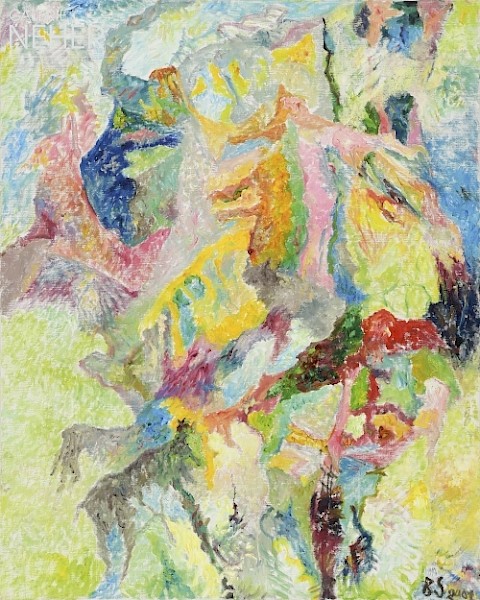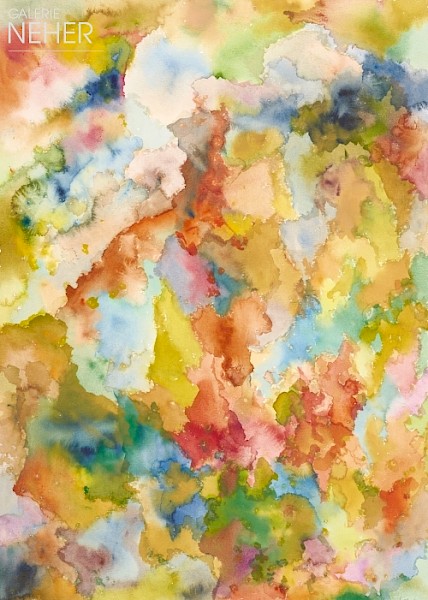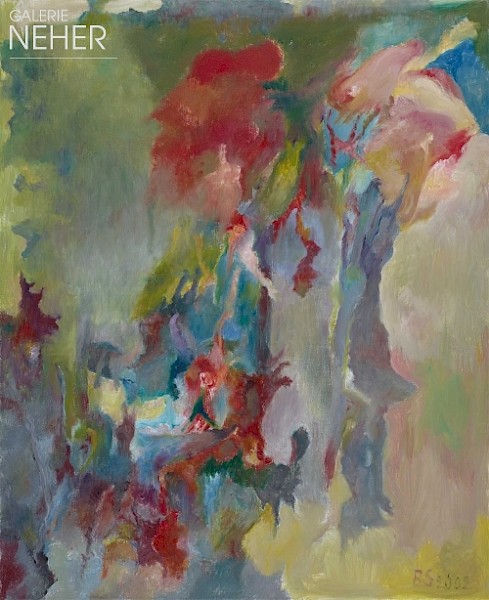Bernard Schultze - Leichte Brise 1 (Gentle Breeze 1), 2002
Watercolour on paperboard
73 x 51 cm / framed 91 x 68 cm
28 x 20 inch / framed 35 x 26 inch
Dated bottom right, signed, titled
"2002 Bernard Schultze "leichte Brise 1" "
– with handmade craftman's frame and non-reflective, UV-absorbing glass –
N 9222
8,200 €
Provenance:
Nachlass des Künstlers
Exhibitions:
Essen, Galerie Neher, Herbst-Winter 2022/2023, Katalog mit farbiger Abbildung Seite 59
Bernard Schultze - Leichte Brise 1 (Gentle Breeze 1), 2002
Watercolour on paperboard
73 x 51 cm / framed 91 x 68 cm
28 x 20 inch / framed 35 x 26 inch
Dated bottom right, signed, titled
"2002 Bernard Schultze "leichte Brise 1" "
– with handmade craftman's frame and non-reflective, UV-absorbing glass –
N 9222
8,200 €
Provenance:
Nachlass des Künstlers
Exhibitions:
Essen, Galerie Neher, Herbst-Winter 2022/2023, Katalog mit farbiger Abbildung Seite 59
About the work
Bernard Schultze, who grew up in Berlin, lost the entirety of his early work in the Second World War. After 1968, he lived with his wife, the artist Ursula, in Cologne, where he also died in 2005. The impressions of destruction and war left deep traces in his work. "With woods, hands, the brush, I allowed myself to meander over the horizontal painting surface, panicked at the horror vacui, attempted to free myself by pouring turpentine over it. Puddles, hills, valleys, cracks, barky excrescences formed, the crumbling walls, the delta landscapes, the deserts, steppes and karst areas, Russia’s expanses emerged, the dark, green forests of my childhood on the Polish border. Such images, tags of memories rushed into me. I allowed myself to be carried away by them in a string of associations and at the same time tried to watch myself over my own shoulder. The stimulating game, idea and control in quick succession, had begun. That was the stimulation, which is how painting became a substitute for life."
The creation of informal paintings is thus based neither on traditional schemata of composition nor on pictorial concepts formulated in advance. On the contrary, one’s own subjectivity and coincidence are elevated to compositional devices. Informal works can therefore also only be described exactly with difficulty in terms of their precise impact. Rolf Wedewer formulated this fundamental doubt of informal painting, the period of origin of which lies directly following the horrors of the National Socialist regime, especially impressively: “The informal in general is a radically perfected doubt of any reliability; reflected is the experience of the fragility, the brittleness of reality and the world.”
Text authored and provided by Dr Andrea Fink, art historian
The art historian, curator and freelance publicist Andrea Fink studied art history, cultural studies and humanities, modern history and philosophy in Bochum and Vienna. Doctorate in 2007 on the work of the Scottish artist Ian Hamilton Finlay. As a freelance curator and art consultant, her clients include, among others, the Kunstverein (art association) Ahlen, Kunstverein Soest, Wella Museum, Museum am Ostwall Dortmund, ThyssenKrupp AG, Kulturstiftung Ruhr, Osthaus Museum Hagen, Franz Haniel GmbH, Kunsthalle Krems, Austria.
